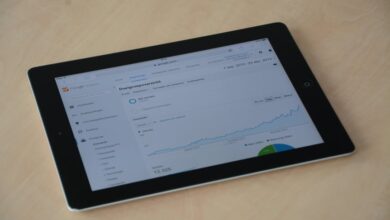Boosting Your Business With Effective Bookkeeping 4127631095

Effective bookkeeping serves as the backbone of any successful business. It ensures that financial transactions are recorded accurately and systematically, allowing for informed decision-making. By adopting strategic bookkeeping practices, a business can enhance its operational efficiency and mitigate errors. However, many organizations overlook the potential of technology in this realm. Understanding the interplay between traditional methods and modern tools can significantly impact a company’s financial health and future growth. What steps can be taken to maximize these benefits?
Understanding the Basics of Bookkeeping
Bookkeeping serves as the foundational element of any successful business, encompassing the systematic recording, organizing, and tracking of financial transactions.
Understanding bookkeeping terminology is essential for interpreting financial statements accurately. This knowledge empowers entrepreneurs to make informed decisions, ensuring their businesses remain solvent and poised for growth.
Mastery of these basics fosters clarity and control, ultimately leading to financial freedom and success.
Implementing Efficient Bookkeeping Practices
Establishing efficient bookkeeping practices is crucial for maintaining financial accuracy and operational effectiveness within a business.
Effective record keeping ensures that all financial transactions are documented systematically, reducing errors and enhancing clarity.
Regular audits and reconciliations help identify discrepancies promptly, fostering a culture of transparency.
Utilizing Technology for Streamlined Bookkeeping
In today’s digital age, leveraging technology can significantly enhance the efficiency of bookkeeping processes.
Cloud solutions provide secure data storage and accessibility, fostering collaboration among teams.
Additionally, automation tools streamline repetitive tasks, reducing human error and saving time.
Analyzing Financial Data for Business Growth
A comprehensive analysis of financial data is crucial for businesses aiming to drive growth and make informed decisions.
By identifying financial trends through meticulous examination, companies can uncover opportunities and mitigate risks.
Data visualization enhances this process, transforming complex information into accessible insights.
This approach empowers businesses to strategize effectively, fostering an environment where informed choices lead to sustainable growth and financial freedom.
Conclusion
In conclusion, effective bookkeeping is integral to fostering sustainable business growth and financial stability. By adopting systematic practices and leveraging technology, businesses can enhance operational efficiency and make informed decisions. As the adage goes, “A penny saved is a penny earned”; thus, meticulous financial management not only preserves resources but also builds stakeholder trust. Ultimately, embracing these strategies enables businesses to thrive in a competitive landscape, paving the way for informed budgeting and successful forecasting.



